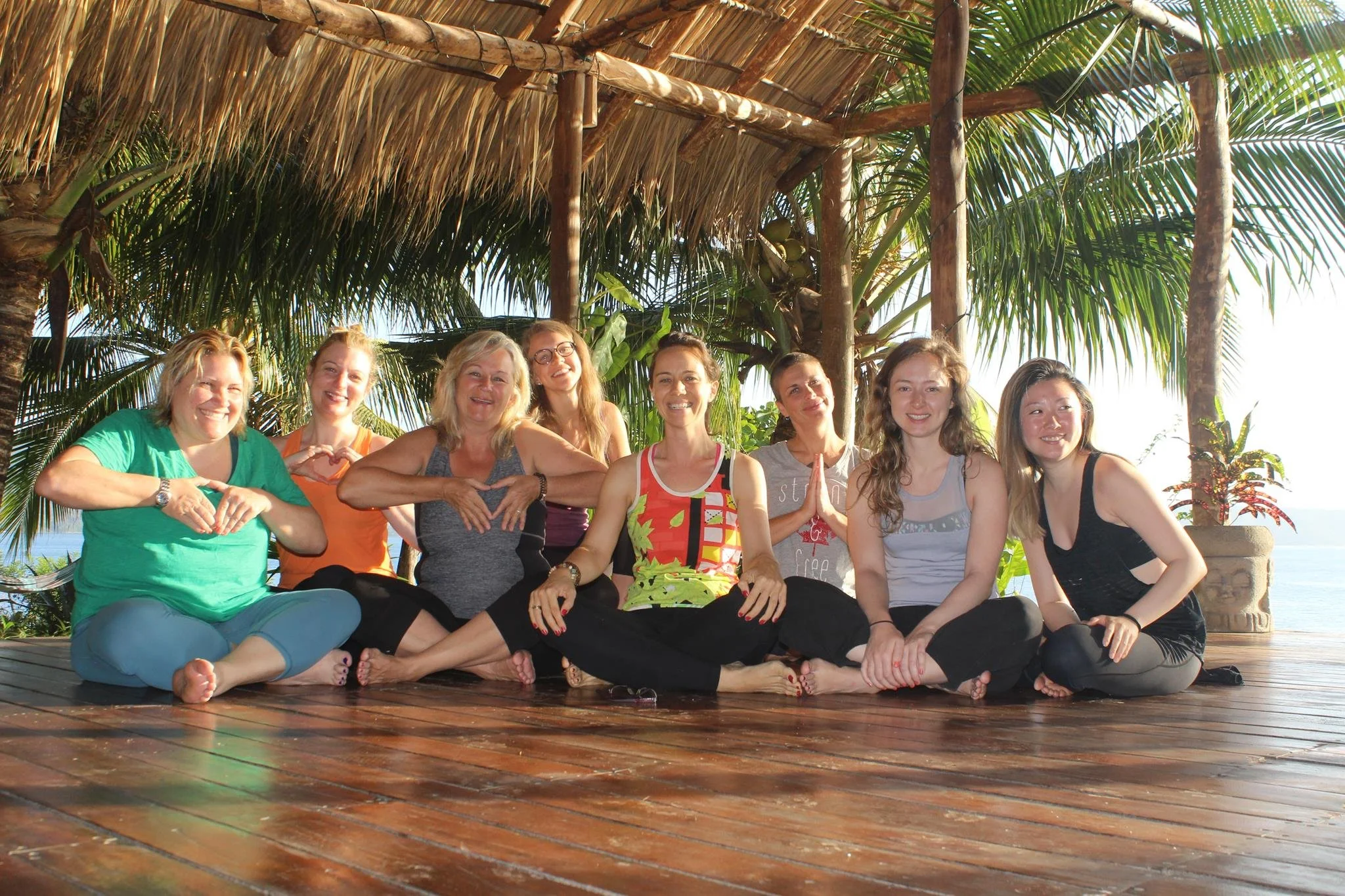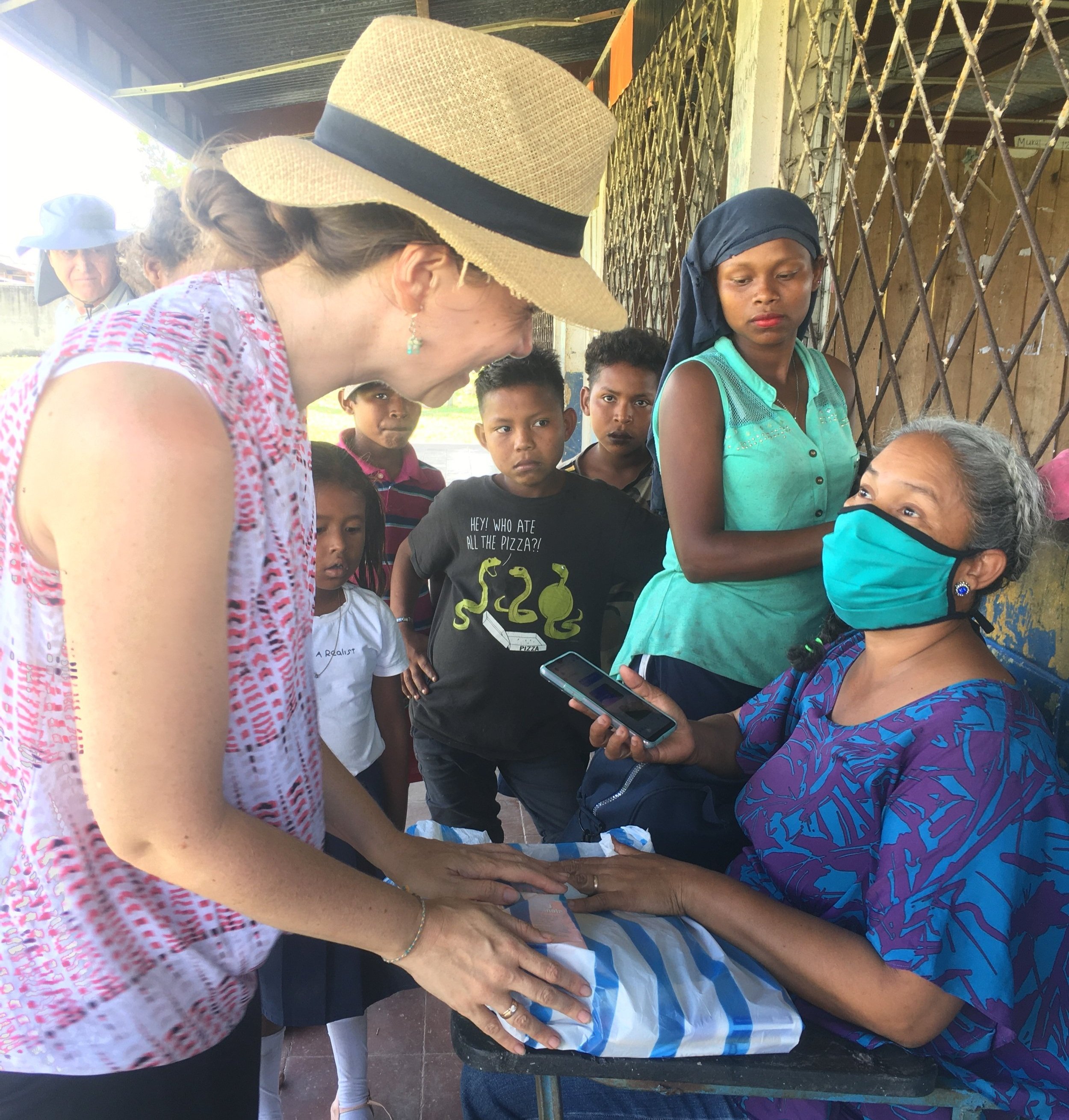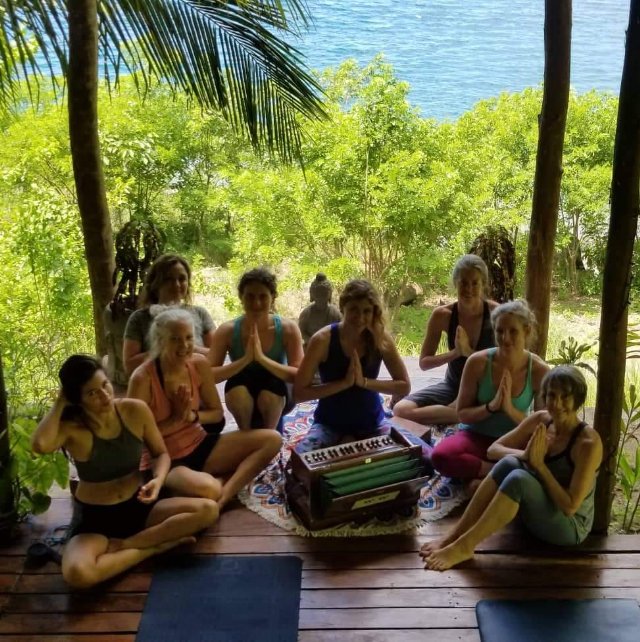What is Compassion Fatigue and How Can We Manage It?
Have you ever felt a weight, a sort of heaviness, tied to the events unfolding around you—or even somewhere else in the world—something you can’t quite put into words?
I know I’ve certainly been feeling this over the last few weeks: the ongoing conflicts in Ukraine and the Middle East, back-to-back hurricanes hitting the U.S., and the tragic flash flood in Spain a couple of weeks ago.
I recently learned that these overwhelming emotions, though hard to name, are often linked to something called compassion fatigue—a powerful force that can leave us drained and uncertain.
But what exactly is compassion fatigue, and how does it affect us?
Compassion Fatigue: When Caring Too Much Takes a Toll
If you've known me for more than five minutes, you probably already know that compassion runs deep within me. This deep empathy for both humans and animals has shaped much of my life. In fact, it was this very trait that led me to transition to a vegan lifestyle 12 years ago (a story for another time). It also guided me into the humanitarian world before I started my venture here in Apoyo Lagoon, and has fueled my dream of opening an animal rescue center in the not-too-distant future. (Maybe you will help me make it a reality?)
When I witness suffering—whether in humans or animals—it affects me deeply. I feel it on a cellular level, as if I were experiencing their pain myself. My ability to empathize with others is both a gift and a challenge, especially when it feels like the weight of the world's suffering is constantly on my shoulders.
Do you ever feel this way?
Over the past few weeks, I’ve found myself consuming more news and social media than I usually allow, as it felt like there was always something major happening. It’s been frustrating and heartbreaking to witness—especially when I think about the ongoing conflicts in Ukraine and the Middle East, where thousands of innocent lives have been lost now for years. I feel deeply saddened and frustrated that, as a species, we continue to let this happen.
Then there’s the heartbreaking response—or lack of it—from governments and institutions when natural disasters strike. I feel shocked to see people suffer from the aftermath of hurricanes and floods, without their most basic needs being met for days, even weeks, simply because those in power are still debating how and who should provide the help.
This feeling I’ve been experiencing—constantly being overwhelmed by the world's suffering, physically and emotionally—isn’t just something I can shake off easily. In fact, it’s a form of emotional burnout that many people in caregiving, humanitarian, or high-stress environments experience. It’s called compassion fatigue.
Compassion fatigue is a term that describes the emotional and physical exhaustion that comes from caring too much. It’s the result of repeatedly witnessing or hearing about others’ suffering, whether through media, personal connections, or in professional roles like healthcare or social work. It’s not just about feeling sad or upset—it’s the draining effect of feeling the suffering of others so deeply, to the point where you begin to feel empty, disconnected, or even numb.
This type of fatigue can affect anyone who is emotionally invested in the well-being of others. Whether you are constantly exposed to tragic news or involved in efforts to alleviate suffering, compassion fatigue can creep up, leaving you feeling like you’ve run out of emotional resources to give.
So, How Can We Effectively Manage Compassion Fatigue?
The first step is recognizing that you’re not alone in feeling this way. We live in a world where we're constantly connected to real-time news from across the globe, and it’s easy to become overwhelmed by the amount of suffering we witness daily. Whether we work in caregiving professions or simply care deeply about others, many of us are experiencing this emotional exhaustion.
The good news is that there are strategies to help protect your emotional health and regain a sense of balance, even when the world’s suffering feels overwhelming. These strategies don’t require professional intervention (though I recommend you seek the right kind of help if you’re a caregiver, humanitarian, or first responder) and can be simple, actionable steps to manage your emotional state and prevent burnout.
Effective Strategies for Managing Compassion Fatigue
Limit News Consumption
Constant exposure to distressing news can significantly contribute to emotional exhaustion. Set boundaries for how much time you spend consuming news, and try to focus on trusted sources that offer a balanced perspective. Take intentional breaks from news and social media, especially before bed, to ensure it doesn't affect your mental well-being or disrupt your sleep. Research suggests that reducing media consumption can lower stress and promote emotional recovery.
2. Practice Mindfulness and Meditation
Simple mindfulness practices, such as deep breathing or meditation, can help calm your nervous system and manage stress. A basic breathing exercise—like inhaling for a count of four, holding for four, and exhaling for four—can help restore emotional balance. Studies have shown that mindfulness-based interventions reduce anxiety and stress while improving emotional regulation.
3. Create Emotional Boundaries
It’s important to care without absorbing the full emotional burden of others’ suffering. Compassionate detachment allows you to support others without taking on their pain. Recognize your feelings of empathy, but remind yourself that it’s okay to step back and protect your emotional space. Setting these boundaries helps you to stay connected while maintaining emotional resilience.
4. Engage in Activities That Bring Joy
Engaging in activities that replenish your emotional reserves is crucial. Whether it’s spending time in nature, practicing a hobby, or simply enjoying time with loved ones, these activities provide a mental and emotional recharge. Research shows that hobbies, leisure activities, and socializing can reduce stress and enhance overall well-being. For me, that is playing and hugging my dogs :)
5. Find Support in Community
Connecting with others who are experiencing similar feelings can reduce feelings of isolation. Whether it’s talking to a friend or joining a support group, sharing your emotional experiences can help you process and release built-up tension. Just knowing that others are going through the same emotional turmoil can bring comfort and a sense of solidarity.
6. Focus on Positive Action
When the world’s suffering feels overwhelming, focusing on small, positive actions can help shift your mindset from helplessness to empowerment. This can be as simple as volunteering locally, donating to a cause, or reaching out to offer support to others. Even small acts of kindness can create a ripple effect, offering you a sense of agency and reinforcing that you’re making a difference, however small it may seem.
7. Take Time to Disconnect and Recharge
For some, a short retreat or getaway can provide profound relief from compassion fatigue. Stepping away from daily pressures and the flood of distressing information creates space for mental and emotional recovery. At Villa Laguna, our retreats are designed to help you fully disconnect and reconnect with yourself through mindfulness, nature, and nourishing practices. Taking this time for yourself can be one of the most effective ways to restore balance and resilience.
And last but not least…
Remember, taking care of your own heart makes it stronger, allowing you to keep showing up for yourself and others with compassion and resilience. It’s like the real-life version of ‘put your mask on before helping anyone else’—my decade in the airline industry making a cameo here!
You’re not alone on this journey. I’ve got you, always.
Miriam













